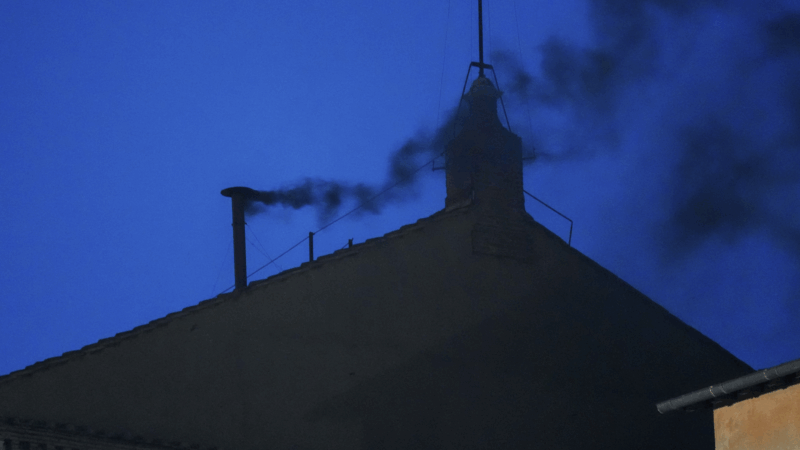Black smoke rises from the Sistine Chapel as cardinals cast an unsuccessful first vote
VATICAN CITY — Black smoke streamed from the chimney of the Sistine Chapel on Wednesday, signaling to the world that the 133 cardinal electors have not come to a two-thirds agreement about who the next pope should be.
Earlier on Wednesday, the cardinals of the Roman Catholic Church entered the Sistine Chapel to begin the conclave, where they will select a new pope for the world’s 1.4 billion Catholics.
The cardinal electors will resume voting on Thursday morning. From now on, they will vote four times a day until a candidate for the papacy achieves a two-thirds majority, with a break for a day of prayer if no pope is elected after three days.
Rome is buzzing in anticipation of this moment, and the Via della Conciliazione leading to St. Peter’s Square is packed. Pilgrims, journalists, cardinals and curious onlookers have migrated to Vatican City to observe what they can of the secret conclave.
Now that the first day of conclave has concluded, Thursday morning the cardinals will celebrate Mass and then meet again in the Sistine Chapel to vote. If that vote is unsuccessful, they will immediately vote again. After that, they can vote twice in the afternoon, and in the following days there can be two votes in the morning and two in the afternoon.
House Dem. Leader Jeffries responds to air strikes on Iran by U.S. and Israel
NPR's Emily Kwong speaks to House Minority Leader Hakeem Jeffries (D-NY), who is still calling for a vote on a war powers resolution following a wave of U.S.- and Israel-led airstrikes on Iran.
Iran’s Ayatollah Ali Khamenei is killed in Israeli strike, ending 36-year iron rule
Khamenei, the Islamic Republic's second supreme leader, has been killed. He had held power since 1989, guiding Iran through difficult times — and overseeing the violent suppression of dissent.
Found: The 19th century silent film that first captured a robot attack
A newly rediscovered 1897 short by famed French filmmaker Georges Méliès is being hailed as the first-ever depiction of a robot in cinema.
‘One year of failure.’ The Lancet slams RFK Jr.’s first year as health chief
In a scathing review, the top US medical journal's editorial board warned that the "destruction that Kennedy has wrought in 1 in office might take generations to repair."
Here’s how world leaders are reacting to the US-Israel strikes on Iran
Several leaders voiced support for the operation – but most, including those who stopped short of condemning it, called for restraint moving forward.
How could the U.S. strikes in Iran affect the world’s oil supply?
Despite sanctions, Iran is one of the world's major oil producers, with much of its crude exported to China.




